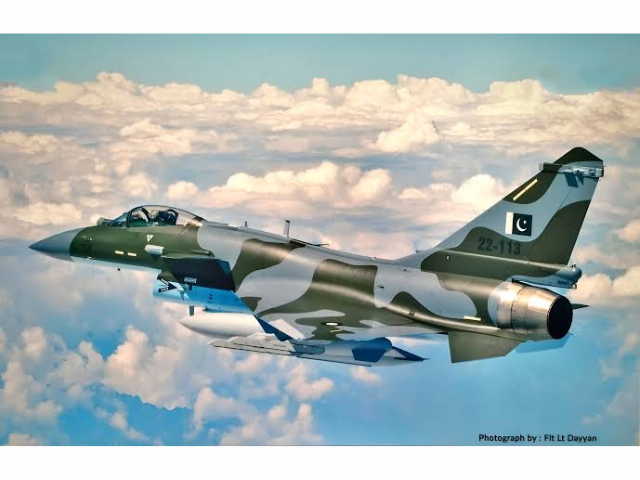The conflict between Pakistan and India in May 2025 marked a major military escalation between the two nuclear forces. Following the Pahagam attack on April 22, Illegal Jammu and Kashmir (IIOJK) occupied 26 tourists, and blamed Islamabad immediately without presenting evidence. It also took a number of major diplomatic measures to downgrade its ties with Pakistan. Islamabad denied the claims and offered an impartial probe in the incident.
The night of May 7, the Indian Air Force launched an unprovoked attack on civilian targets in Pakistan. Pakistan Air Force (PAF) immediately reciprocated and shot down at least six IAF jet, including three French-built Rafales.
At night, 9-10. May Launched India another round of strikes against Pakistan, but this time targeted military places. In contrast, Pakistan Operation launched Bunyanum Marsoos, which struck back on Indian military installations, including missile storage sites, airbases and other strategic goals. On May 10, US President Donald Trump announced that a ceasefire had reached after an intense diplomatic effort overnight.
Read: French intelligence officer confirms the Downing of Rafale by Pakistan
While Indian political leadership has consistently denied losses, a number of comments from senior Indian defense officials suggest in recent weeks that the Indian Air Force (IAF) suffered losses and potentially more than previously recognized. It also shows that political and military leadership is not on the same page and is lost by how to form a new narrative.
Air Marshal AK Bharti
The first official tip came on May 11 when AK BHARTI, Director General of Air Operations, answered a journalist’s question on a press release on Operation Sindoor. He said, “Loss is part of the fight … all our pilots are at home.” Although he did not confirm the number or type of lost aircraft, it marked the first public admission of any kind with regard to IAF losses.
General Anil Chauhan
On May 31, General Anil Chauhan, India’s Chief of Staff, made a more pointed remark during an interview with Bloomberg TV on the Shangri-La dialog in Singapore.
India’s military confirmed for the first time that it lost an unspecified number of fighter jets in clashes with Pakistan in May.
Anil Chauhan, Defense Chief of the Indian Armed Forces, spoke with Bloomberg TV on Saturday while participating in the Shangri-La dialog in … pic.twitter.com/9y3gw6wjfn
– Bloomberg TV (@bloombergtv) 31 May 2025
By rejecting reports that six Indian jets had been closed down, he noted, “What is important is not the jet, but why they were down … It’s more important to us. And what did we do after it.” General Chauhan also acknowledged that IAF was “disabled” in his flying operations in the next two days – a significant revelation from India’s top military official.
Captain (in) Shiv Kumar
A third and especially sincere recording came on June 10 from Captain (in) Shiv Kumar, India’s Defense to Indonesia, while spoken at a university seminar entitled ‘Analysis of Pakistan – India Air Battle and Indonesia’s anticipating strategies from the Perspective of Air Force’, host of Universitas Dirgantara Marseekal Suryadarm in Jakarta.
“I may not agree that we lost so many planes, but I agree that we lost some aircraft … The Indian Air Force lost fighter jets to Pakistan on the night of May 7, 2025, only because of the restriction given by political leadership not to attack the military establishment or their air defense,” he said.
Read more: India again admits Jettab in Pakistan -clashes and quotes political boundaries
Captain Kumar’s statement was not only remarkable to confirm IAF’s losses, but also to attribute them directly to political restrictions imposed by New Delhi – an implication that contradicts official claims that the armed forces were given full operational freedom during the conflict.
Defense Secretary RK Singh
On July 8, Defense Secretary RK Singh added the growing list of official acknowledgments in an interview with CNBC-TV18. In response to speculation about the loss of several Rafale aircraft, he said, “You have used the term rafales in the majority, I can assure you that it is definitely not correct.”
While he was intended to deny the extent of losses required by Pakistan, Singh’s remark effectively confirmed that at least one rafale may have been reduced – again without revealing numbers.
General Rahul Singh
Further confirmation came from the Indian Deputy Berry Chief LT General Rahul Singh, who ended two months after the matches, recognized India’s military defeat in the operation.
ALSO READ: Pakistan had real -time knowledge of Indian jets during Operation Sindoor: Security Experts
Although his comments included accusations that Pakistan’s success was supported by foreign support from China and Turkey, regional analysts and security experts have rejected these claims and claimed that Pakistan’s gains were achieved independently.
“Pakistan’s security forces were fully aware of Indian fighter flights in real time … We have prepared for decades to counter India,” said security experts, adding that the victory was the result of professionalism, strategy and training, not external assistance.
Overall, these statements paint a picture of protected recordings from Indian officials and reveal more through what was left unsaid than what was openly confirmed.



